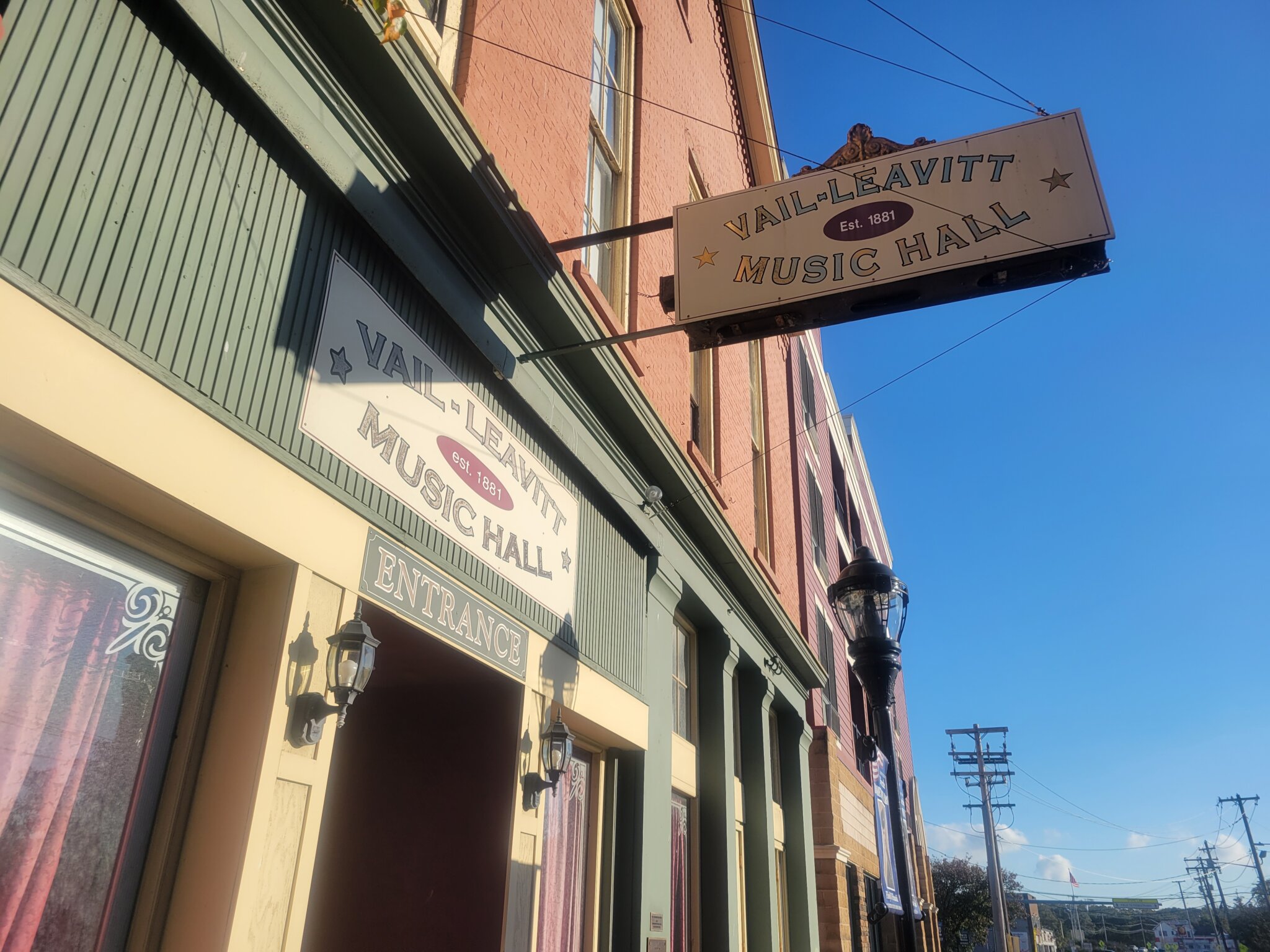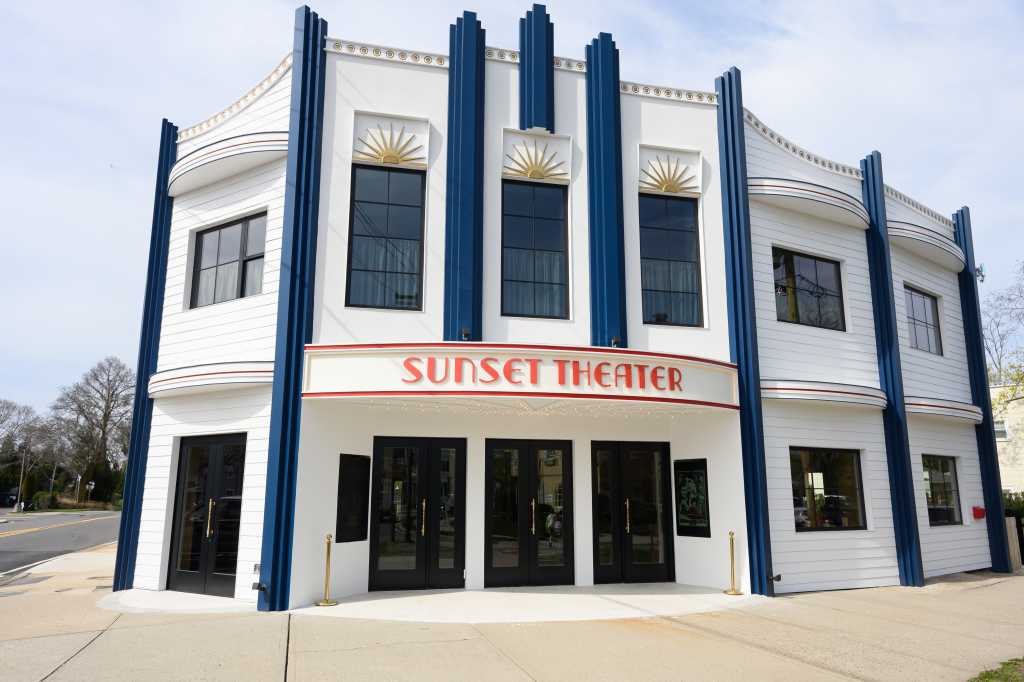Historic Vail-Leavitt Music Hall Awaits its Next Act in Downtown Riverhead

On October 11, 1881, the theater that would eventually come to be known as the Vail-Leavitt Music Hall officially opened its doors on what is now Peconic Avenue in downtown Riverhead. The oldest performance venue in downstate New York, the Music Hall mounted its first show a full two decades before the Great White Way was the Great White Way. (Broadway’s first theaters, the Lyceum and the New Amsterdam, didn’t open until 1903.)
According to local historians Harold Smith, Jean Hallock, Sylvia Shaffran and Robert Barta, the Music Hall’s inaugural show was a concert featuring both amateur and professional performers. While the performers’ names have long since been relegated to the dustbin of history, we have it on good authority that the show was sponsored by the Rough & Ready Engine Company of Riverhead.
As the story goes, the performance was still chugging along at 3 a.m. when the Rough & Ready Engine Company, most of whom were presumably still in attendance and enjoying the show at the theater, were summoned to fight a blaze at a local farm. According to accounts in the Riverhead News, the brave firefighters ran off to do their duty “grabbing such hats as they could get” from the coat hooks on the walls of the theater — and “leaving the ladies to wend their way home as best they could.”
Fast forward to the early 1980s. The Music Hall’s heyday had long since come and gone. There hadn’t been a performance within its walls for approximately half a century. Instead, the venue had at various times functioned as a restaurant, a pool hall and a betting parlor, until it was ultimately used exclusively for storage by its then-owner Ted Leavitt, who operated a men’s clothing store on the ground floor of the building.
In 1982, the Town of Riverhead’s community development office, realizing the potential of the elegant upstairs theater, secured a HUD grant to create the Council for the Vail-Leavitt Music Hall, which assumed ownership and managerial control of the building. The council raised over $100,000 in cash and in-kind contributions to operate and restore the theater. Since the mid-1980s, the Hall has been listed on the National Register of Historic Places.
The council’s four-decade tenure as the custodians of the theater ended abruptly in October of this year, when longstanding disagreements between the board and the town reached an inflection point. Amid a lawsuit filed by the town and accusations and counter-accusations centered around accrual of debt and general mismanagement, all five members of the board of directors of the council resigned in unison and officially ceded full control of the theater back to the Town of Riverhead.
Now that “The Vail,” as most locals call it, is under new management and entering a new phase of its life, residents and town officials hope it will serve as a symbol of the ongoing renaissance of Riverhead’s historic downtown.
While perceptions vary about the board’s management of the Vail, the general consensus was that, even taking the myriad challenges the board faced into account, the once-vibrant venue wasn’t living up to its artistic or economic potential.
Local stakeholders and politicians hope that’s about to change.
“The objective of the board was to create a performing arts center that earns enough money to manage and take care of the building, which is also a historic resource,” says Dawn Thomas, director of community development for the Riverhead department of economic development, planning and building. “Now that the town is back in control, I’m optimistic that the Vail can become another anchor in the town’s cultural and arts offerings — that it can be a companion to the Suffolk Theater and East End Arts. Those venues can work in tandem and really become a powerful economic engine for downtown.”
Concrete plans for the theater’s revitalization haven’t yet been finalized. But according to multiple sources, the tentative roadmap calls for the appointment of a new board of directors as soon as possible.
“We recently appointed the town board as board members of the Vail-Leavitt, but that is only temporary,” says Tim Hubbard, a sitting board member and the newly elected Riverhead town supervisor. “We are actively seeking qualified people to become the face and board of the theater.”
In a perfect world, the wishlist for new board members would probably consist of some combination of civic and business leaders, patrons of the arts, fundraising professionals and “theater people” — as well as an executive director with a performing arts venue-management background.
The Riverhead town council will be seating two new members in January. And with Hubbard transitioning to the town supervisor’s office, it’s possible that the board will experience a kumbaya-style meeting of the minds about the fate of the Vail and other town business.
But if past is prologue, that’s far from a given. The board and the supervisor’s office have a recent history of internecine squabbling. And as a councilman, Hubbard publicly butted heads with outgoing town supervisor Yvette Aguiar on several issues.
At least fundraising is off to a good start. In early November, the Vail was awarded a $250,000 grant through the Suffolk County Jump Start program. Initially, the funds will be used to perform essential repairs on the building.
Once its new board is in place, which will likely happen sometime in early 2024, the vision for the Vail’s near-term future should become more clear.
Whether or not the new board can resurrect the Vail as a cultural hub and transform it into a lynchpin of the downtown Riverhead economy remains to be seen. But local residents and politicos are certainly rooting for it.
“It’s a beautiful building that has so much potential,” says Hubbard. “With the right people running it, the possibilities are endless.”



